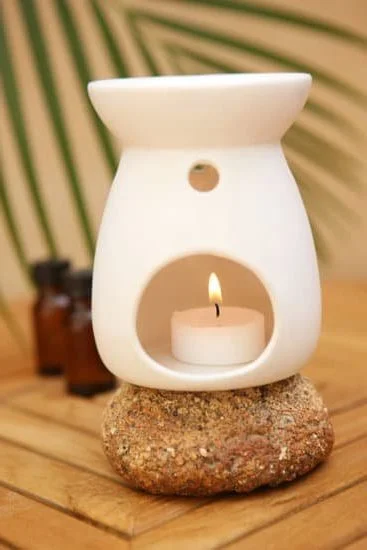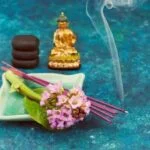Aromatherapy has gained significant popularity in recent years due to its potential to promote relaxation, enhance mood, and improve overall well-being. The use of essential oils in aromatherapy is a common practice that dates back centuries, with each oil offering unique benefits and properties.
But with an overwhelming number of options available, choosing the right essential oils for aromatherapy can be a daunting task. In this article, we will explore the world of aromatherapy and guide you through the process of selecting the essential oils that are best suited to your individual needs and preferences.
Before diving into the specifics of essential oils, it is important to understand what exactly aromatherapy is and the potential benefits it offers. Aromatherapy is a holistic healing practice that utilizes natural plant extracts, known as essential oils, to promote physical and psychological well-being. These oils are distilled from various parts of plants such as flowers, leaves, fruits, or seeds and contain concentrated compounds that lend them their unique therapeutic qualities.
Choosing the right essential oils for aromatherapy is crucial as different oils have different therapeutic properties. While some essential oils promote relaxation and calmness, others may invigorate and energize. Additionally, individual health concerns and personal sensitivities should be taken into consideration when selecting essential oils for aromatherapy. By understanding these factors and exploring the vast array of options available, you can create a personalized aromatic experience that suits your needs perfectly.
Understanding the Basics of Essential Oils
Essential oils are the foundation of aromatherapy and understanding their basics is essential for anyone interested in pursuing this therapeutic practice. So, what exactly are essential oils? They are highly concentrated plant extracts that capture the natural scents and beneficial properties of various plants. These oils are extracted through different methods such as steam distillation, cold-pressing, or solvent extraction, depending on the plant and its parts.
There is a wide array of essential oils available, each with its own unique scent and therapeutic benefits. Some popular types include lavender, peppermint, eucalyptus, tea tree, rosemary, lemon, bergamot, chamomile, frankincense, ylang-ylang, ginger, fennel, wintergreen, marjoram, and many more. Each oil has its own distinct aroma profile and specific health benefits.
When it comes to choosing essential oils for aromatherapy, it is important to consider personal preferences and scent preferences. Since aromatherapy primarily utilizes the sense of smell to induce various effects on the mind and body, enjoying the aroma of the chosen oil is crucial for a positive experience. Additionally, individual health concerns and sensitivities should be taken into account when selecting essential oils. Certain oils may have contraindications for certain individuals or conditions.
To further guide your selection process for essential oils in aromatherapy practices tailored to specific needs or intentions can also be considered. For example:
- For improving focus and concentration during work or study sessions: Rosemary oil and lemon oil are excellent options known for their stimulating properties.
- To alleviate stress and anxiety: Bergamot oil can help uplift mood while chamomile oil provides soothing effects.
- For promoting better sleep: Roman chamomile oil is known for its calming properties while clary sage oil helps relax both mind and body.
- To boost creativity and motivation: Frankincense oil has been traditionally used to enhance focus and ylang-ylang oil can provide a mood-enhancing effect.
By understanding the basics of essential oils, you can make informed choices and create your own unique aromatherapy rituals that cater to your individual needs and preferences. Experiment with different oils and blends to discover what works best for you in enhancing your overall well-being.
Factors to Consider Before Choosing Essential Oils for Aromatherapy
Before diving into the world of aromatherapy and selecting essential oils, it is important to consider a few factors that will guide you in choosing the right oils for your needs. These factors include personal preferences and scent preferences, individual health concerns and sensitivities, as well as the purpose of your aromatherapy practice.
Firstly, personal preferences and scent preferences play a significant role in choosing essential oils for aromatherapy. Aromatherapy is not just about the benefits of the oils themselves but also about how they make you feel personally. Consider scents that you find pleasing, as this will enhance your overall experience with aromatherapy. Whether you prefer floral scents like lavender or uplifting citrus scents like lemon, there is an array of aromas available to suit everyone’s taste.
Another important factor to consider is your individual health concerns and sensitivities. Some essential oils may have specific properties that can benefit certain health conditions, while others may cause adverse reactions or allergies.
For example, if you have sensitive skin or respiratory issues, it is best to avoid strong irritants such as cinnamon or strong citrus oils like orange. It’s always advisable to consult with a healthcare professional before starting any new aromatherapy regimen, especially if you have any underlying health conditions.
Lastly, define the purpose of your aromatherapy practice before selecting essential oils. Are you looking for relaxation and stress relief? Do you need something to boost your energy levels? Each essential oil has unique properties and benefits that cater to different purposes. For relaxation, lavender oil is well-known for its calming effects on both body and mind. Peppermint oil is energizing and invigorating if you need a pick-me-up during the day.
Ultimately, taking these factors into consideration will help guide you in selecting essential oils that are best suited for your needs and desired outcomes in achieving maximum benefit from your aromatherapy practice.
Must-Have Essential Oils for Every Aromatherapy Enthusiast
For every aromatherapy enthusiast, building a collection of essential oils is an exciting journey. These oils play a crucial role in enhancing your well-being and transforming your daily routine into a spa-like experience. While there are endless options available, there are a few must-have essential oils that should be included in every aromatherapy collection.
One essential oil that should not be missed is lavender oil. Known for its calming and relaxing properties, lavender oil is perfect for those seeking tranquility and stress relief. Its soothing fragrance helps promote relaxation, making it an ideal choice for winding down after a long day or before bedtime. Additionally, lavender oil has been used to reduce anxiety and improve sleep quality.
Peppermint oil is another must-have for aromatherapy enthusiasts. With its invigorating and refreshing properties, peppermint oil can be used to create an energizing atmosphere or provide relief from tension headaches. The cooling sensation of peppermint oil can also help clear nasal passages and promote better respiratory health.
Eucalyptus oil is prized for its respiratory benefits and ability to clear the mind. This essential oil is commonly used in inhalation therapy to relieve congestion and support optimal respiratory function. In addition to these physical benefits, eucalyptus oil has a stimulating aroma that can help improve focus and mental clarity during work or study sessions.
Tea tree oil is another valuable addition to any aromatherapy collection due to its antimicrobial and healing effects. This powerful essential oil can be used topically to treat skin conditions such as acne, rashes, or cuts due to its antibacterial properties. It can also be diffused to purify the air in your home and create a fresh ambiance.
These four essential oils – lavender, peppermint, eucalyptus, and tea tree – are considered must-haves for every aromatherapy enthusiast. They offer a range of benefits from promoting relaxation to supporting respiratory health and providing antimicrobial effects. As you start your journey with aromatherapy, these essential oils will serve as the foundation of your collection, allowing you to explore different blends and create personalized experiences that enhance your well-being.
Essential Oils for Common Aromatherapy Practices
Focus and Concentration
Aromatherapy can be a powerful tool for improving focus and concentration. When you need to clear your mind and enhance mental clarity, certain essential oils can work wonders. Rosemary oil is known for its stimulating properties and is often used to improve cognitive function.
Lemon oil is another excellent choice as it can boost alertness and increase focus. To reap the benefits, you can diffuse these oils in your workspace or mix a few drops with a carrier oil and apply it to your wrists or temples.
Stress Relief and Anxiety
In today’s fast-paced world, stress and anxiety are common issues that many people face. Aromatherapy can provide relief by promoting relaxation and calming the nervous system. Bergamot oil is particularly effective at reducing stress levels and uplifting the mood.
Chamomile oil, both Roman chamomile and German chamomile varieties, has soothing properties that can help ease anxious feelings. You can add a few drops of these oils to your bath, use them in a diffuser, or create a personal inhaler for on-the-go relief.
Sleep Promotion
Getting adequate sleep is crucial for overall well-being. If you struggle with insomnia or want to improve the quality of your sleep, incorporating aromatherapy into your bedtime routine can be beneficial. Roman chamomile oil has sedative properties that make it an excellent choice for promoting relaxation before sleep.
Clary sage oil is known to reduce anxiety and induce feelings of calmness, making it another valuable essential oil for restful sleep. Diffuse these oils in your bedroom or dilute them in a carrier oil to apply to pulse points before going to bed.
Enhancing Creativity and Motivation
When you’re feeling uninspired or lacking motivation, certain essential oils can help ignite creativity and boost productivity. Frankincense oil is often used for meditation and deepening focus, making it an ideal choice for enhancing creativity.
Ylang-ylang oil is known to uplift the mood and promote a sense of joy, which can be beneficial when working on creative projects. You can diffuse these oils in your workspace or create a personalized room spray to invigorate your environment and stimulate your mind.
By incorporating these essential oils into your aromatherapy practices, you can enhance various aspects of your well-being. Whether you’re looking to improve focus, reduce stress, enhance sleep, or boost creativity, there is an essential oil that can help you achieve your goals. Experiment with different combinations and find the scents that resonate with you personally. Remember to always use high-quality oils from reputable brands and follow proper dilution ratios to ensure safe and effective use.
Tailoring Essential Oils to Specific Health Concerns
When it comes to using essential oils for aromatherapy, it is important to consider your specific health concerns and address them with the right oils. Different essential oils have unique properties that can help alleviate various ailments and promote overall well-being. In this section, we will explore some common health concerns and the corresponding essential oils that can be used for relief.
One common health concern is headaches and migraines. Peppermint oil has been found to be effective in reducing the severity of headaches and migraines. Its cooling sensation and analgesic properties provide relief when applied topically or inhaled through aromatherapy. Lavender oil is also renowned for its calming effects, which can aid in reducing tension headaches.
For those experiencing digestive issues, ginger and fennel oil are often recommended. Ginger oil has long been used to alleviate nausea, indigestion, and stomach discomfort. Fennel oil, on the other hand, can help improve digestion by stimulating the production of digestive enzymes and reducing bloating.
Muscle and joint pain are common concerns for many individuals. Wintergreen oil is known for its powerful analgesic properties and can provide relief from muscular aches when applied topically. Marjoram oil is another excellent choice for alleviating muscle tension due to its relaxing effects.
Skin conditions like acne, eczema, or dryness can also benefit from essential oils. Tea tree oil has antimicrobial properties that make it an effective treatment for acne-prone skin. It helps kill bacteria on the skin surface while reducing inflammation. Lavender oil is gentle yet effective in soothing irritated skin and promoting healing.
It is important to note that while essential oils can offer relief for specific health concerns, they should not replace medical advice or treatment prescribed by healthcare professionals. If you are uncertain about using essential oils for a particular health issue or have any underlying medical conditions, it is always best to consult with a healthcare practitioner.
To summarize, tailoring essential oils to specific health concerns can enhance the benefits of aromatherapy. Peppermint and lavender oil are excellent for headaches and migraines, while ginger and fennel oil help with digestion.
Wintergreen and marjoram oil are ideal for muscle and joint pain relief, while tea tree and lavender oil can improve various skin conditions. By understanding the properties of essential oils and their effects on specific health concerns, you can harness the power of aromatherapy to support your well-being.
| Health Concern | Recommended Essential Oils |
|---|---|
| Headaches and Migraines | Peppermint oil, Lavender oil |
| Digestive Issues | Ginger oil, Fennel oil |
| Muscle and Joint Pain | Wintergreen oil, Marjoram oil |
| Skin Conditions | Tea tree oil, Lavender oil |
Blending Essential Oils for Custom Aromatherapy Recipes
When it comes to aromatherapy, blending essential oils is an art form that allows you to create custom recipes tailored to your specific needs. By combining different oils, you can enhance their individual benefits and create unique scents that promote relaxation, boost energy, relieve stress, and more. However, it is important to understand the basics of blending essential oils and follow safety precautions to ensure a positive and enjoyable experience.
To start blending essential oils, it is crucial to have a good understanding of each oil’s properties and how they complement each other. Some oils have similar therapeutic properties that can work synergistically when blended together, while others may have conflicting effects. Researching the individual profiles of essential oils will help you make informed decisions when creating your blends.
Safety precautions should always be considered when working with essential oils. It is important to remember that these oils are highly concentrated and can cause skin irritation or other adverse reactions if used improperly. Diluting the essential oils in a carrier oil such as jojoba oil or coconut oil before applying them to the skin is necessary to avoid potential side effects.
| Blend | Purpose | Essential Oils |
|---|---|---|
| Relaxation Blend | Promoting relaxation and reducing stress | Lavender, Roman Chamomile, Ylang-Ylang |
| Energizing Blend | Increasing focus and boosting energy levels | Peppermint, Rosemary, Lemon |
| Sleep Aid Blend | Improving sleep quality and promoting relaxation | Lavender, Clary Sage, Bergamot |
| Stress Relief Blend | Easing stress and anxiety | Bergamot, Chamomile, Frankincense |
Remember that blending essential oils is a personal experience, and what works for one person may not work for another. It is important to experiment with different combinations and adjust the ratios until you find blends that resonate with you. Aromatherapy should be a pleasurable journey of self-discovery, so don’t be afraid to get creative and have fun with your custom aromatherapy recipes.
Tips for Purchasing and Storing Essential Oils
Quality assurance and reputable brands
When it comes to purchasing essential oils for aromatherapy, it is important to prioritize quality assurance and choose reputable brands. Due to the rising popularity of essential oils, the market has become saturated with various brands and products claiming to be natural and pure. However, not all essential oils are created equal. Some may contain synthetic additives or fillers, which can diminish their therapeutic benefits.
To ensure that you are getting high-quality essential oils, look for brands that adhere to strict manufacturing standards and provide transparency in their production processes. Reputable brands often perform rigorous testing on their products to ensure purity, potency, and authenticity. Look for certifications such as “pure,” “organic,” or “therapeutic grade” on the labels as indicators of quality.
Proper storage techniques to maintain potency
Once you have purchased your essential oils, proper storage is crucial to preserve their potency and extend their shelf life. Essential oils are highly concentrated plant extracts that are sensitive to light, heat, air, and moisture. Exposure to these elements can deteriorate the quality of the oil over time.
To maintain the integrity of your essential oils, store them in amber or dark-colored glass bottles that protect against light exposure. Keep them in a cool, dry place away from direct sunlight or extreme temperature fluctuations. It is also important to ensure that the bottles are tightly sealed after each use to prevent unnecessary oxidation.
Cost-effective options
While it may be tempting to invest in large quantities of expensive essential oils right away, it is important to consider cost-effective options when starting out with aromatherapy. Essential oils can vary widely in price depending on factors such as rarity, extraction methods, and brand reputation.
If you are on a budget or just beginning your journey with aromatherapy, start by purchasing smaller bottles or sets of essential oils that include a variety of commonly used oils. This way, you can experiment with different scents and properties without breaking the bank. Additionally, consider purchasing essential oils in bulk or taking advantage of sales and discounts offered by reputable brands.
Remember that a little goes a long way with essential oils, as they are highly concentrated. Therefore, even small bottles can last for months when used properly. It is better to invest in high-quality oils that may be more expensive but provide greater therapeutic benefits and last longer, rather than compromising on quality for quantity.
By following these tips for purchasing and storing essential oils, you can ensure that you are getting the best value for your money while enjoying the full benefits of aromatherapy.
Conclusion
In conclusion, incorporating essential oils into your aromatherapy routine can be a transformative experience for your overall well-being. By understanding the basics of essential oils and considering factors such as personal preferences, health concerns, and the purpose of aromatherapy, you can choose the right oils that align with your needs and goals.
Throughout this article, we have explored several must-have essential oils for every aromatherapy enthusiast. Lavender oil promotes relaxation and has calming effects, while peppermint oil invigorates and refreshes. Eucalyptus oil provides respiratory benefits and clears the mind, while tea tree oil offers antimicrobial and healing effects. Additionally, we have discussed essential oils tailored to specific health concerns such as headaches, digestive issues, muscle and joint pain, and skin conditions.
When it comes to blending essential oils for custom recipes, it is important to understand the art of combining different scents. Taking safety precautions and using appropriate dilution ratios ensure that you achieve the desired effects without causing any harm. Throughout this article, we have provided recommended blends for various purposes including focus and concentration, stress relief and anxiety reduction, sleep promotion, and enhancing creativity and motivation.
Frequently Asked Questions
Can all essential oils be used for aromatherapy?
Not all essential oils can be used for aromatherapy. While many essential oils have therapeutic properties and can be beneficial for various purposes, not all are suitable or safe for use in aromatherapy.
Some essential oils may be irritating to the skin or mucous membranes, while others may have potential toxic effects if used improperly. It is crucial to consult a trained aromatherapist or do thorough research before using any essential oil in aromatherapy to ensure its safety and efficacy for the intended purpose.
What is the most popular aromatherapy scent?
It is difficult to determine the most popular aromatherapy scent as personal preferences vary greatly. However, some commonly used scents in aromatherapy include lavender, citrus (such as lemon and orange), peppermint, eucalyptus, and tea tree. These scents are widely appreciated for their soothing and refreshing qualities.
Lavender is often associated with relaxation and sleep, while citrus scents tend to be invigorating and uplifting. Peppermint is commonly used for its energizing properties, eucalyptus for respiratory support, and tea tree for its antimicrobial abilities. Ultimately, the choice of scent depends on individual needs and preferences.
What scents for aromatherapy?
There is a wide variety of scents used in aromatherapy, each with its own specific benefits and applications. Apart from the aforementioned popular scents like lavender, citrus, peppermint, eucalyptus, and tea tree, other commonly used scents include rosemary (known for mental clarity), chamomile (used for relaxation), ylang-ylang (associated with stress relief), bergamot (known for mood enhancement), frankincense (used in meditation practices), and clary sage (associated with hormonal balance).
Additionally, less common but still utilized scents include sandalwood (known for grounding effects) and geranium (associated with emotional well-being). The selection of scents depends on the desired therapeutic effects and personal preferences.

Are you looking for a natural way to improve your health and wellbeing?
If so, aromatherapy may be the answer for you.





